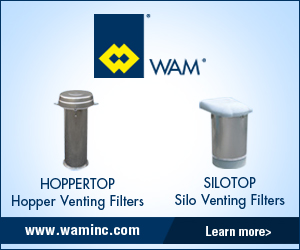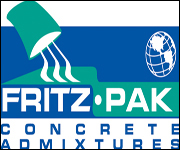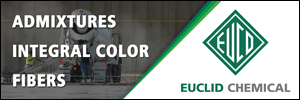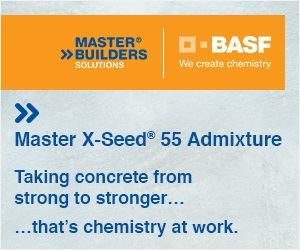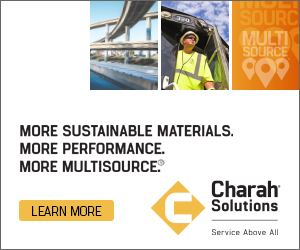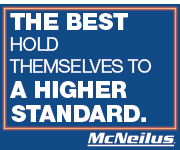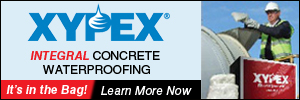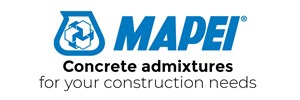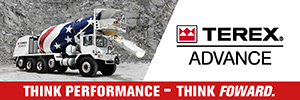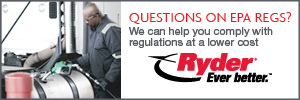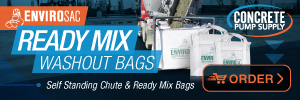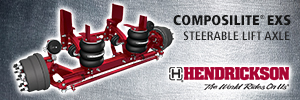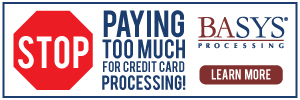 |
||||||||||||||
|
||||||||||||||
|
Association & Industry News
The exhibitor prospectus for the upcoming NRMCA’s ConcreteWorks 2019, being held at the Gaylord Palms Resort & Convention Center in Kissimmee, FL, (metro Orlando) from October 3 - 7 is now available. The event will be co-located with the Portland Cement Association's (PCA) Fall Board and Committee Meetings. We are also happy to welcome back the American Concrete Pumping Association (ACPA) which will be joining NRMCA in the exhibition hall. The application process utilizes a priority point formula for the assignment of exhibit space. Applications and payment received before July will be part of the priority assignment process. Past ConcreteWorks exhibitors and/or the ACPA Education Conference will be assigned by priority number first. New exhibitors will then be assigned in the order in which they were received. Applications received on or after July 1 will be assigned on a first-come, first-served basis by exhibition management. Exhibit space costs can be found in the exhibitor prospectus. Reserve your space now by completing the application and returning it to NRMCA along with the required payment. Please note that the cost of the exhibit space does NOT include attendee registration; a separate attendee registration form should be completed for attendees of exhibiting companies. For more information, please contact Senior Director of Meetings Jessica Walgenbach at jwalgenbach@nrmca.org. Click here for the exhibitor prospectus. The NRMCA’s ConcreteWorks 2019 website and exhibitor prospectus will be available soon via this link.
Engineering
Earlier this month, NRMCA Engineering Staff traveled to Denver to attend the American Society of Testing Materials meeting of Committees C09 on Concrete and C01 on Cement. What follows are summaries of activity of those committees: C09.20 Concrete Aggregates - ASTM C136 on sieve analysis is being revised to address excessive differences between original and final weight (after sieving) of the sample. The subcommittee reviewed a proposal to qualify carbonate-based mineral fillers for use in concrete exposed to sulfates in specification C1797. The subcommittee is considering the deletion of the weathering zone U.S. map and simplifying the physical requirements for coarse aggregate in Table 4 of Specification C33. Revisions are in progress to C566 (total moisture content of aggregates), C40 (organic impurities), C123 (lightweight particles in aggregate) and C131 (abrasion resistance). C09.24 Supplementary Cementitious Materials - In ASTM C311, a variation of strength activity index (SAI) that will evaluate strength contribution due to water reduction and chemical reactivity was balloted as an appendix. The subcommittee is considering developing this as an independent test method. The subcommittee is evaluating other measures of pozzolanic activity to include measures of chemically bound water; calcium hydroxide consumption; heat of hydration based on calorimetry and a lime-based strength reactivity index test. The first two approaches are being developed as test methods. A presentation on the lime-based test showed promise as inert fillers did not gain strength. A proposed specification for ground glass pozzolan is working through the balloting process. A ballot to raise the strength activity index limit of natural pozzolans from 75 to 80 to eliminate some inert fillers was not successful. As an alternative, a note will be considered to clarify that meeting the SAI limit does not guarantee concrete performance such as improved durability. Also, a note will be added to permit water requirement that exceeds 115% for natural pozzolans provided concrete performance was acceptable. A ballot to add a new class of pozzolan in ASTM C618 for ground bottom ash (GBA) was not successful. Revisions to include GBA and harvested ash (extracted from landfills) was discussed. A specification for colloidal silica will be balloted. Under new business, a new performance specification for SCMs was discussed; Also, a revision is being proposed to ASTM C618 for blending materials, including processing additions, to produce fly ash that conforms to the specification. C09.40 Ready Mixed Concrete - The bulk of the meeting was spent resolving negatives from the main committee on the proposal to replace the 90-minute time limit for delivery to be replaced by limit set by the producer or purchaser that would be applicable to project conditions or the type of mixture. Revisions will be made based on some comments and the proposal will be balloted again. Other work in progress is to require a retest when tests fail slump and air content to include a reference to the specification for mineral fillers, C1797 and blended SCMs, C1697, in C94; address scheduling and performance-based orders in the ordering section; and to revise technician certification requirements by referencing C1077. C09.50 Risk Management for Alkali Aggregate Reactions (AAR) - The subcommittee is balloting several proposals: to require SCMs with a high alkali content, except for natural pozzolans, to be tested by ASTM C1293; to clarify the flowchart in ASTM C1778. The older mortar bar test for ASR, C227, was withdrawn because its results lack reliability to field performance. Presentations on possible new ASR tests - the mini concrete prism test, the autoclave test, and the concrete cylinder test - were made at the meeting. Subcommittee formed an informal task group to monitor the progress of the pyrrhotite issue and the need for tests. There was discussion regarding the reliability of results ASTM C1293 as it relates to field performance because test concrete blocks made with similar mixtures were failing after 10-15 years. However, no failure related to ASR has been reported in field applications which incorporated ASR mitigation measures such as the use of fly ash. C09.60 Fresh Concrete Tests - The subcommittee considered a new standard for the K-slump tester that measures workability (this was previously ASTM C1362). A new method for measuring the electrical resistance of fresh concrete is still in the works. A revision to the consolidation in the slump test was approved to address consolidation problems with lower slump concrete. Rodding will be from the outside moving inward for the bottom layer. C09.61 Strength - Revisions are being considered to include the delivery ticket number on the report for making cylinders, ASTM C31, and the strength test report, C39. Some indicated that this information was not always provided to the laboratory performing the strength tests. Other minor revisions are being considered to ASTM C31, C39 and C192. The subcommittee considered a suggestion that air content should not be measured for non air-entrained concrete when strength specimens are made, but the suggestion was not supported. The subcommittee is finalizing a precision statement for measuring the modulus of elasticity and Poisson’s ratio by ASTM C469, based on results of a recently completed inter-laboratory study (ILS). C09.66 Fluid Penetration - A new test method for measuring the bulk resistivity of hardened concrete was approved. The method would be an alternative method of providing an indication of the permeability of concrete. Other issues will be considered for future revisions, including the need for a verification cylinder, accelerated moist curing and establishing a time limit for taking resistivity readings after specimens are removed from the solution. A revision to ASTM C1202 (rapid chloride permeability) will address a correction to the result for the specimen thickness. The subcommittee is planning interlaboratory studies on several methods under its purview to obtain improved precision statements. Methods include the bulk resistivity method and ASTM C1556, chloride diffusion coefficient. ASTM C09.67 Resistance to Environment - A revision is in the works to ASTM C666 (freeze thaw resistance) to clarify the duration of the freezing and thawing cycles. A suggestion was considered for an appendix that would address a petrographic evaluation of tested specimens to evaluate whether deterioration to specimens is caused by non-durable aggregate as opposed to the lack of a good air void system. This was not supported. C01.10 Hydraulic Cement - Revisions to cement standards are coordinated to ensure consistency between ASTM and AASHTO specifications for hydraulic cement. Recent revisions to ASTM C150-19a include removal of the low alkali option (0.60% Na2O eq.) for portland cement with a requirement to report the alkali content for all cement types; revise the heat of hydration limits for Type II (MH) portland cements; and deletion of the Wagner method of measuring the fineness. Revisions to the specification for blended cement, C595, include removal of the Option R for alkali silica reactivity mitigation of cement; remove the evaluation of the alkali reactivity of pozzolan used in blended cement; and to define the heat of hydration limits based on C1702 (isothermal calorimetry). Revisions being considered is a requirement to report the chloride content and to evaluate the potential for early stiffening of blended cements (in C595). For more information, contact Colin Lobo at clobo@nrmca.org or Karthik Obla at kobla@nrmca.org.
SEO
Each year hundreds of people attend NRMCA’s National Mixer Driver Championship (NMDC). In conjunction with ConcreteWorks, October 5 - 7, 2019, this event is one of the industry's best opportunities for ready mixed concrete producers to interact with companies that provide goods and services to the concrete industry. This year's sponsorships are selling fast, so hurry and take advantage of the NMDC sponsorship opportunities. You can choose anything from "Challenges" to sponsoring the awards banquet for the drivers – there’s something for everyone’s budget. For just $500 your driver will know you’ve got his or her back when he or she pulls up to the challenge and sees your company’s logo! Use the sponsorship form here to secure your spot as a sponsor. For more information, please contact Jacques Jenkins at jjenkins@nrmca.org or at 240-485-1165. Learning & Development
Only 50 producers have completed the survey to date, far fewer than any other year. To put this in perspective, last year a total of 183 responded. Please help. A new question is being asked for retention strategies that are working. Producers report increasing driver pay, providing better benefit packages, and giving performance and signing bonuses. Is this accurate? Statistically the reporting numbers are too small to know. Help NRMCA provide the industry with data that matters. PLEASE have your appropriate person gather your driver employment data and fill out the anonymous survey. No one has to calculate formulas, just give us the employment numbers and we run the calculations. The survey closes on Friday, June 28. Click here to begin the survey. For more information, contact Eileen Dickson at edickson@nrmca.org. Government Affairs
Congress has approved and President Trump has signed a package containing $19.1 billion in disaster relief funds - more than half of which will go for infrastructure and related work - to help storm-battered regions of the U.S. rebuild from hurricanes, floods and other calamities (view bill summary here and text of final bill here). The construction-related funding includes work that will benefit concrete industry: Department of Defense - $2.7 billion to repair and reconstruct facilities at military bases. Among the affected installations are Tyndall Air Force Base in Florida, which was hit hard by Hurricane Michael, and Offutt Air Force Base in Nebraska, heavily damaged by floods earlier this year. Federal Highway Administration, Emergency Relief - $1.65 billion. Reimburses states and territories for damage from natural disasters to roads and bridges in the National Highway System. Community Development Block Grants-Disaster Recovery - $2.431 billion. Helps communities rebuild housing, businesses and public infrastructure in the most impacted and distressed areas affected by major natural disasters. When combined with $1.68 billion of CDBG-DR funding in the FAA reauthorization, there will be a total of $3.89 billion in resources for 2018 and 2019 disasters, of which more than $1 billion is available for resiliency and mitigation activities. Build With Strength, a coalition lead by NRMCA that promotes resilient concrete construction through communications, project promotion, education and advocacy, can help leverage policies to help place more concrete. For more information, contact Tien Peng at tpeng@nrmca.org or 206-913-8535. Pavement
Milis Flatwork in Wisconsin, an NRMCA Parking Lot Boot Camp contractor in 2016 and member of the American Society of Concrete Contractors (ASCC), sent information last week on a 30,000 square foot concrete overlay of an old, deteriorating asphalt parking lot. The lot for the Seven Up Bottling Company is located at 920 Packerland Drive in Green Bay and was completed in one day. Placed on Friday before Memorial Day, the lot (before and after photos seen here) was back in service and open for business the following Tuesday. For more information, contact Jon Hansen at jhansen@nrmca.org. NRMCA is still accepting applications for the Excellence in Quality Award contest. A company must be a NRMCA Producer member in good standing to participate. Companies can enter as a company or a division. Applicants are asked to respond to a multiple-choice application form that generates their scores. Companies or divisions that achieve a score of 75% or greater will be recognized at NRMCA's ConcreteWorks scheduled from October 5-7 in Kissimmee, FL. There are several advantages to participating in this award program, including: Click here to access the link for the Excel file. Before starting the survey, please download the file to your computer and save it using a different file name (company/division name). Then e-mail the completed Excel file and required attachments to Karen Bean at kbean@nrmca.org by Sunday, June 30. For more information, contact Vice President, Technical Services, Karthik Obla 1-888-846-7622, x1163 or kobla@nrmca.org. Calendar
*Please note that e-mail and direct links to each event listed below can be accessed from NRMCA's Web site. July 10 – 11, Dallas October 5 - 7, Kissimmee, FL November 11 – 15, Baltimore November 19 – 21, Orlando, FL December 10 – 13, Orlando, FL
2020 January 14 – 16, Des Moines, IA January 28 – 30, Orlando, FL March 7 - 9, Las Vegas, NV March 10 - 14, Las Vegas, NV September 27 - 29, Aurora, CO |
||||||||||||||
